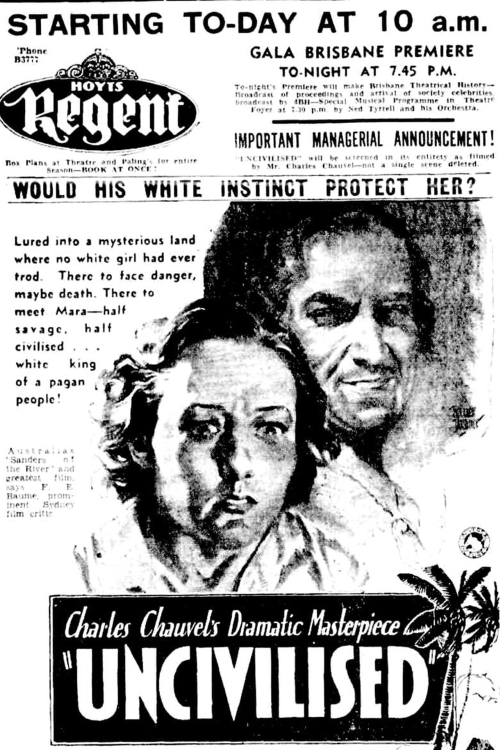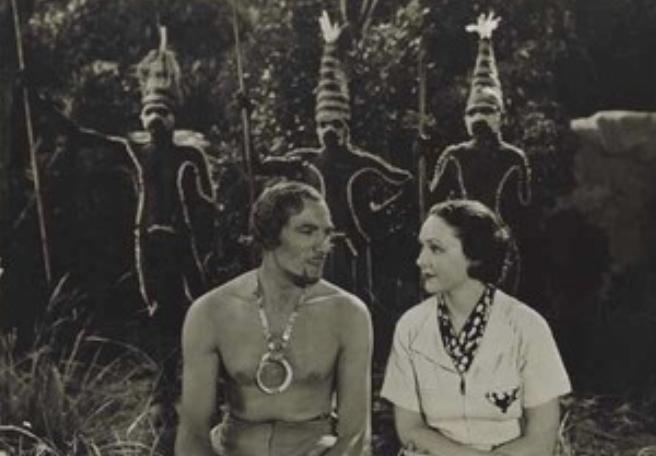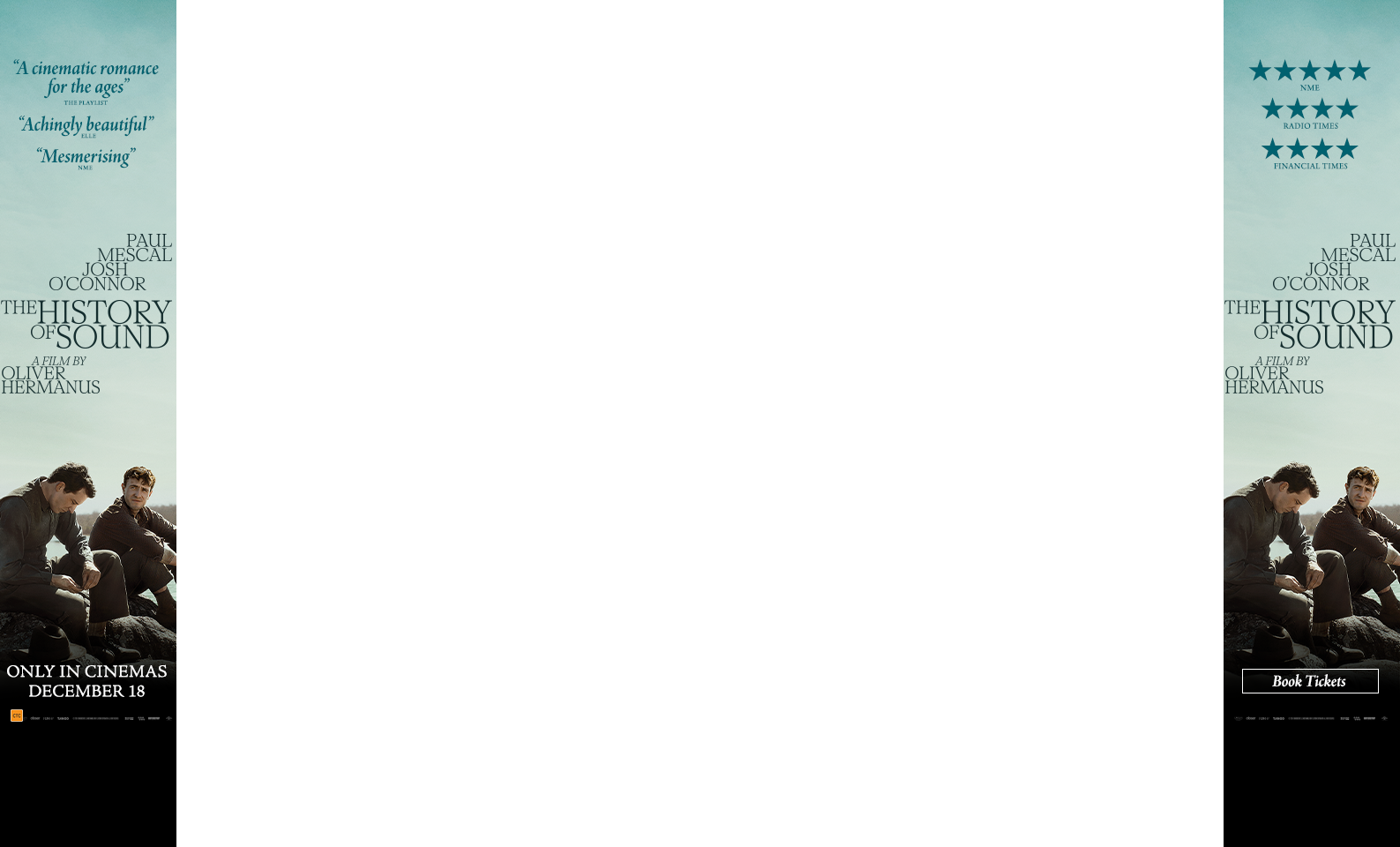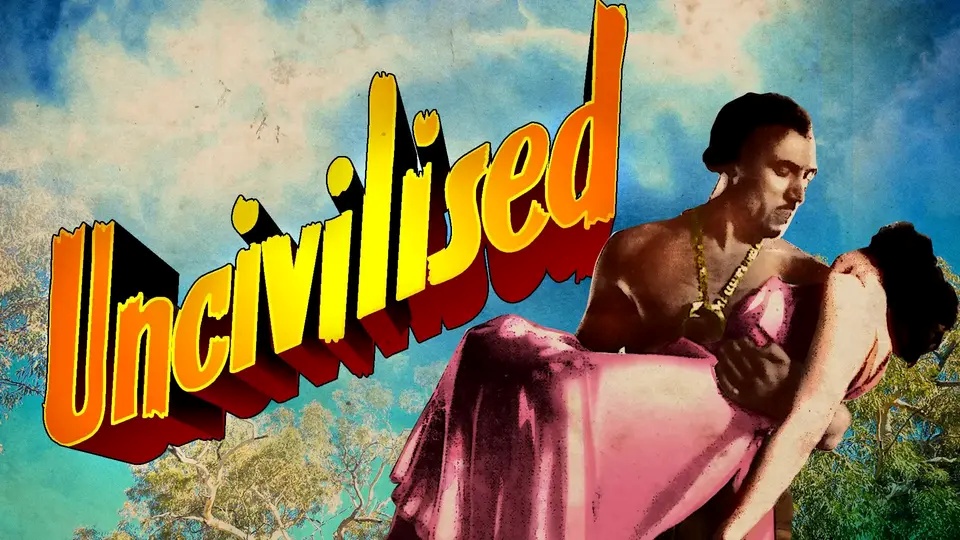by Stephen Vagg
 Prior to the revival of the Australian film industry, Charles Chauvel was one of our leading filmmakers, directing nine features, as well as being involved in different capacities on numerous others; he also made a television series and a handful of shorts, as well as writing several books, almost always working in collaboration with his wife Elsa. The Chauvels are best remembered for Jedda, Sons of Matthew and Forty Thousand Horsemen, but everything that he made is worth a look, including Uncivilised.
Prior to the revival of the Australian film industry, Charles Chauvel was one of our leading filmmakers, directing nine features, as well as being involved in different capacities on numerous others; he also made a television series and a handful of shorts, as well as writing several books, almost always working in collaboration with his wife Elsa. The Chauvels are best remembered for Jedda, Sons of Matthew and Forty Thousand Horsemen, but everything that he made is worth a look, including Uncivilised.
This was Chauvel’s fifth feature as director; his first two had been silents (Moth of Moonbi, Greenhide), then he made two historical sound epics, In the Wake of the Bounty (Errol Flynn’s first movie) and Heritage. None of Chauvel’s films had been particularly popular at the box office – indeed, it’s a tribute to his tenacity that he kept raising finance – and with Uncivilised he seemed motivated to make something more “commercial” … to wit, a knock-off of Tarzan, H. Rider Haggard and numerous other jungle adventure tales about white men lording it among the savages. Chauvel argued that he was inspired by stories of real-life Australians who lived among Aboriginals, but the real impetus for Uncivilised were the pulp dramas of the time.
The film starred Margot Rhys (a former model who’d been in Heritage) as Beatrice, a female novelist persuaded to venture into Australia’s unexplored northwest where it’s rumoured a white man, Mara, rules a tribe of local Aboriginals. Beatrice ventures north as part of a caravan but is kidnapped by an Afghan trader and shipped off to Mara (Dennis Hoey), who does in fact exist. Beatrice has to deal with Mara’s burning passion and singing, not to mention the jealousy of “half-caste” woman Sonya (Marcelle Marnay), who loves Mara but cannot be with him because she is half-caste; there’s also opium smugglers, a missing detective called Peter Radcliffe, rubies, a renegade Aboriginal warrior, and a destructive drug.
To paraphrase something that George MacDonald Fraser once wrote about Sanders of the River (1935) (a British imperial epic that likely influenced the Chauvels), to say Uncivilised is racist is like describing Hamlet as a family row: Mara is shown to be superior to the Aboriginals who raised him due to his white skin, the characters are obsessed with miscegenation, none of the Aboriginal characters (played by inhabitants of Palm Island, Queensland and residents of La Perouse in Sydney who were shipped into Pagewood Studios in Sydney) are given any agency or even lines of dialogue outside of chanting, and the depiction of Aboriginal culture is, uh, a grab bag.

Having said that, as a movie, Uncivilised is fast paced and visually striking, with plenty of plot and action, a fantastic climatic battle, enjoyably over the top camp dialogue, and a sexy nude swim from Rhys. We think that it helped that the Chauvels worked on the script with novelist EV Timms (who specialised in Rafael Sabatini-like historical adventure tales) – even if the story is packed with overly familiar tropes from the time (white ruler of native tribes, tragic horny half-caste woman, villainous witchdoctor, undercover agent, heroine who falls for a man who slaps her around), it’s much better written than Heritage and In the Wake of the Bounty. The movie also marked a turning point for Chauvel as a director – he’d never made a picture with such confidence (Ken G Hall didn’t really get into his stride as a director until his sixth feature – it’s all about getting your ten thousand hours, really).
Margot Rhys is an attractive heroine, but Dennis Hoey is absurd in the leading role – he’s in shape but is far too old and unattractive to play his Johnny Weissmuller-type part, and his character singing all the time is just silly (we think the songs were inspired by Paul Robeson warbling in movies such as Sanders of the River). Hoey was hardly a box office name, or even that famous, but imported C-list stars were all the rage in mid ‘30s Australian movies (Helen Twelvetrees, Lloyd Hughes, Charles Farrell, Victor Jory, Zane Grey)
Uncivilised seems to have done only so-so in Australian cinemas but was widely seen overseas (a story common with many Australian genre pieces), although returns to Chauvel and his company, Expeditionary Films were minimal (again, a story common with many Australian genre pieces). It is a flawed movie that needs to be judged by the standards of its time, but it is fascinating and has some amazing things.
You can watch the film for free on Brollie
The author would like to thank Graham Shirley for his assistance with this article. Unless otherwise specified, all opinions are those of the author.




